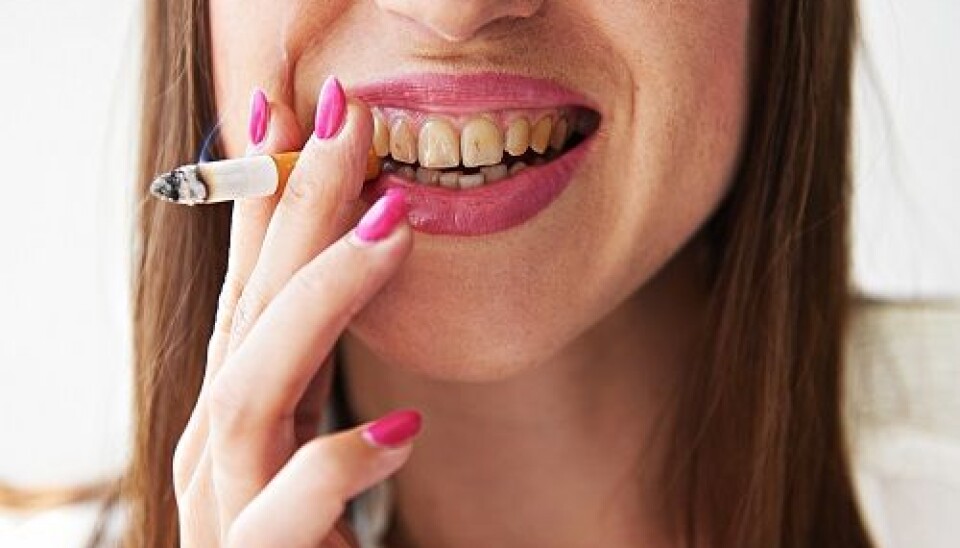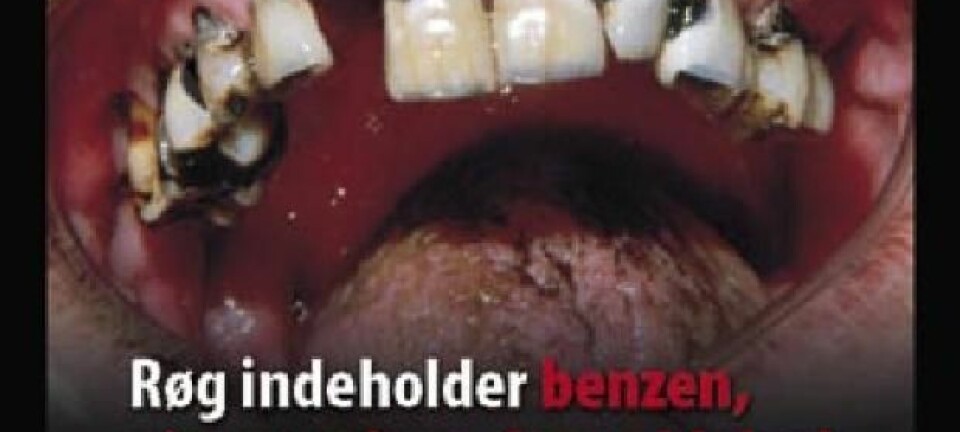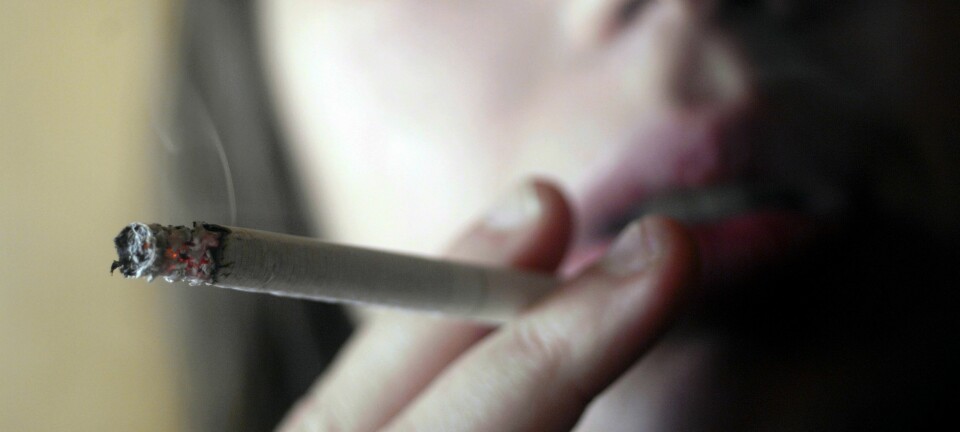
Smoking destroys our oral immune system
Smokers produce fewer antibodies against oral bacteria. This increases the risk of infections, and researchers suspect a link to cancer.
Smokers produce fewer antibodies against oral bacteria, and this increases the risk of paradentosis and infections of the tooth roots, new study shows.
”Smoking causes great changes to the mucous membranes in the mouth. Growth conditions for the good bacteria deteriorate, resulting in an entirely different mouth flora, and the lack of bacteria weakens our immune system,” says the head of research at the Danish Cancer Society Research Center – Diet, Genes and Environment, Anne Tjønneland.
She co-authored the new study, which is published in the journal Cancer Causes & Control.
The researchers suspect that the weakened oral immune system may increase the risk of cancer, but further studies are needed to reach any conclusions about this, says Tjønneland.
“Previous studies have found a link between paradentosis and the development of pancreatic cancer, but this is a very new area of research, so further studies are needed before we can say anything specific about the link to cancer.”
Ex-smokers also have a weakened immune system
The negative effects of smoking on the immune system are not easy to get rid of. The researchers found that people who had quit smoking also had a much lower number of antibodies than non-smokers. In fact, they only had slightly more than the study participants who still smoked.
“The bacterial flora in the mouth is comparable to the one we have in our intestines, and it is not easy to change,” she says.
“We observed minor changes when the participants e.g. started eating a lot of fermented dairy products, but it is very difficult to changes one’s bacterial flora significantly.”
In the study, the researchers used blood samples to study the formation of antibodies against 25 different oral bacteria in 395 cancer-free individuals, who were divided into three groups: smokers, ex-smokers and non-smokers.
The smokers had the lowest amount of antibodies, but only slightly lower than the ex-smokers.
Future research to determine cancer risk
Next up is a comparison of these same blood samples with saliva samples. This will enable the researchers to see which bacteria the smokers lack, and how this relates to the antibodies.
This will also get the researchers closer to an answer to the question whether there is an actual cancer risk in having an imbalance in the oral bacterial flora, as is the case in the intestinal flora.
“Next year we will start a new project called ‘Diet, cancer and health in the next generations’, which will use questionnaire data, blood samples and saliva samples from around 50,000 Danes.”
------------------------
Read the Danish version of this article at videnskab.dk
Scientific links
- Lifestyle, dietary factors, and antibody levels to oral bacteria in cancer-free participants of a European cohort study, Doi: 10.1007/s10552-013-0265-2
- Fusobacterium nucleatum Promotes Colorectal Carcinogenesis by Modulating E-Cadherin/β-Catenin Signaling via its FadA Adhesin, DOI: 10.1016/j.chom.2013.07.012








